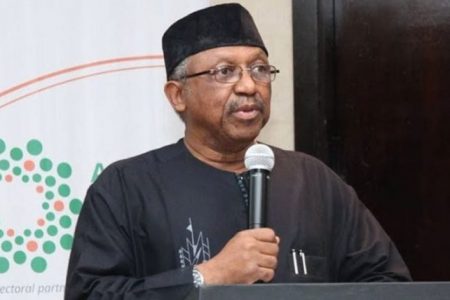The Minister of Health, Osagie Ehanire, has drawn attention to the rising cases of cancer in the country, which will require a comprehensive strategy to stem.
The 2020 International Cancer Week, which drew attendance by medical practitioners and health institutions, was appropriately the auspicious occasion where the minister sounded the alarm on the cancer situation in the country.
Buttressing this, the minister reeled out statistics from Nigeria cancer registries, which indicated an exponential increase in breast cancer for instance, from 13.7 per cent per 100,000 in the 1960s to 26.1 per cent per 100,000 in the 2000s. This shows a doubling of the figure within the time under review.
This statistic could even be more bearing in mind that many cancer cases across the country are not properly reported or brought to the attention of medical practitioners for proper diagnosis and treatment. This could well be attributed to the prohibitive cost of treating cancer not only in Nigeria but even in countries with more advanced medical systems. In this regard, many who cannot afford it opt for traditional methods, which often do not result in proper treatment. This also denies the cancer research authorities the opportunity to research further into the nature and causes of cancer in the country.
Because cancer is a debilitating disease that affects all classes of people, we cannot afford to be indifferent to it especially now that it is on the upward trend.
It is, therefore, quite commendable that the Ministry of Health has risen to the occasion in harnessing all material and human resources to tackle the situation. It is also worthy of note that the minister has enjoined medical practitioners to add routine physical checks for early cancer detections in their consultations with patients. This would no doubt help to provide a database for cancer patients and how to proactively manage it.
Admittedly, the treatment of cancer is a costly affair. The situation is not helped by the grossly inadequate facilities for cancer checks in our medical and health institutions. Some of the critical equipment for examining and treating cancer can only be found in a few hospitals located in different parts of the country. As a result, cancer patients often have to travel long distances to be examined. That in itself does not guarantee that a cancer patient can be immediately attended to as there are long queues of others waiting.
Due to inadequate facilities for tackling cancer in the country, many Nigerians who can afford it have had to travel abroad for treatment. This is not only prohibitively costly and tasking, in a number of recorded cases the results are frustrating to those involved. This is due mainly to the fact that the cases might have reached such an advanced stage that further treatment may not be worth the effort.
Accordingly, we welcome the evolution of a strategy as enunciated by the minister, which involves improved awareness creation, risk communication to reduce carcinogens and routine medical checks. To this must be added the close collaboration with countries and global cancer research institutions for their assistance in the effort to tackle the rising incidence of the disease in Nigeria.
All this requires the involvement of the government in leading and providing the enabling conditions for concerted efforts by stakeholders across the health value chain in the country to tackle the issue.
Citizens can further enhance this by ensuring regular checks to ensure early detection and taking preventive measures to avoid getting the disease. It is all agreed that these are major ways to defeat cancer.

 Join Daily Trust WhatsApp Community For Quick Access To News and Happenings Around You.
Join Daily Trust WhatsApp Community For Quick Access To News and Happenings Around You.


